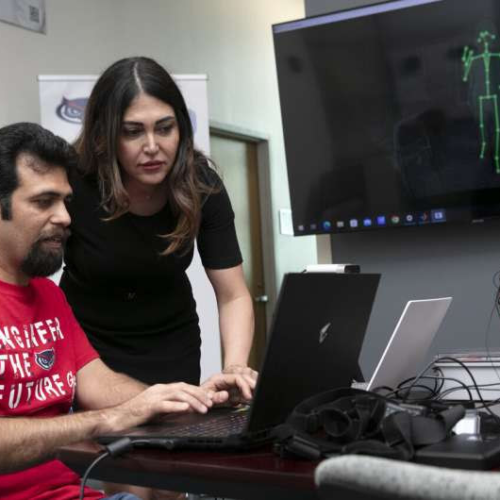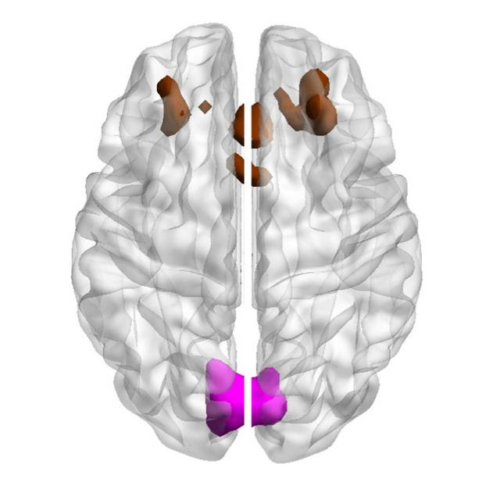Posted Today As we get older, it’s normal for our thinking and memory skills to change, and there is a common misconception that a decline in mental faculties is somehow an acceptable facet of the aging process. While some decline is expected, how much is normal? Understanding what’s considered a typical part of aging versus potential...
Tag: <span>Cognitive decline</span>
Cognitive Decline and Antihypertensive Use: New Data
TOPLINE: Deprescribing antihypertensive medications is associated with a 12% lower likelihood of cognitive decline in older nursing home residents, a new study suggests. The association was strongest among those with dementia. METHODOLOGY: TAKEAWAY: IN PRACTICE: “This work highlights the need for patient-centered approaches to deprescribing, ensuring that medication regimens for older adults are optimized to...
Key mechanisms in asymptomatic Alzheimer’s disease brains offer potential protection against cognitive decline
October 3, 2024 by Indiana University Microglia and astrocytic coverage around compact, intermediate, and filamentous amyloid plaques between AD and AsymAD cases. Credit: Acta Neuropathologica (2024). DOI: 10.1007/s00401-024-02775-1Researchers at Indiana University School of Medicine are examining the brains of individuals with asymptomatic Alzheimer’s disease who, despite having amyloid plaque and tau buildup—the primary indicators of...
Trajectory of Cognitive Decline Before and After Stroke in 14 Population Cohorts
October 2, 2024 Jessica W. Lo, MSc1; John D. Crawford, PhD1; Darren M. Lipnicki, PhD1; et alRicha Author Affiliations Article InformationJAMA Netw Open. 2024;7(10):e2437133. doi:10.1001/jamanetworkopen.2024.37133 Key PointsQuestion What is the outcome of a first stroke on cognitive function? Findings In this cohort study of 14 international cohorts of older adults, stroke was associated with a...
Multiple surgeries could contribute to cognitive decline in older people
September 27, 2024 by University of Sydney Multiple surgeries could lead to cognitive decline, a University of Sydney study has found, using data from the United Kingdom’s Biobank to analyze half a million patients aged 40 to 69 and followed over 20 years of brain scans, cognitive tests and medical records. Many families have stories...
GAMES AND PUZZLES CAN SLOW COGNITIVE DECLINE
A new study suggests that older people with mild cognitive impairment who engage in high levels of activities such as word games and hobbies have better memory, working memory, attention, and processing speed than those who do not. The aging process can lead to diminished cognitive functioning for older adults. In addition, about 10% of...
Researchers identify genetic mutations for rare disorder causing cognitive decline
September 24, 2024 by Mayo Clinic The countries where the disease was reported by 2018 are shown in blue. The countries where the disease was reported between 2018 and 2023 are shown in yellow. The newly reported countries are shown in red. Credit: Neurology Genetics (2024). DOI: 10.1212/NXG.0000000000200187A rare cause of hereditary cognitive decline known...
Cognitive decline may be detected using network analysis, according to Concordia researchers
CONCORDIA UNIVERSITY IMAGE: NATALIE PHILLIPS AND NICHOLAS GRUNDEN: “NETWORK ANALYSIS HELPS US READ BETWEEN THE LINES, BECAUSE WE CAN LOOK AT THE INTERRELATIONSHIPS BETWEEN ALL OF THE VARIABLES AT THE SAME TIME.”CREDIT: CONCORDIA UNIVERSITY We all lose our car keys or our glasses from time to time. Most people would be correct to laugh it...
‘Curved’ walking and a depth camera: New tool detects early cognitive decline
by Florida Atlantic University Mahmoud Seifallahi (seated) and Behnaz Ghoraani, Ph.D., reviewing walking performance using a depth camera, which can detect and track 25 joints of body movement. Credit: Florida Atlantic UniversityA first-of-its-kind study suggests that to detect subtle gait impairments in older adults that often are prevalent in the early stages of cognitive decline,...
Study finds strongest evidence to date of brain’s ability to compensate for age-related cognitive decline
Peer-Reviewed Publication UNIVERSITY OF CAMBRIDGE IMAGE SHOWING BILATERAL CUNEAL (MAGENTA) AND FRONTAL CORTEX (BROWN)CREDIT: ELIFE/UNIVERSITY OF CAMBRIDGE Scientists have found the strongest evidence yet that our brains can compensate for age-related deterioration by recruiting other areas to help with brain function and maintain cognitive performance. As we age, our brain gradually atrophies, losing nerve cells...



